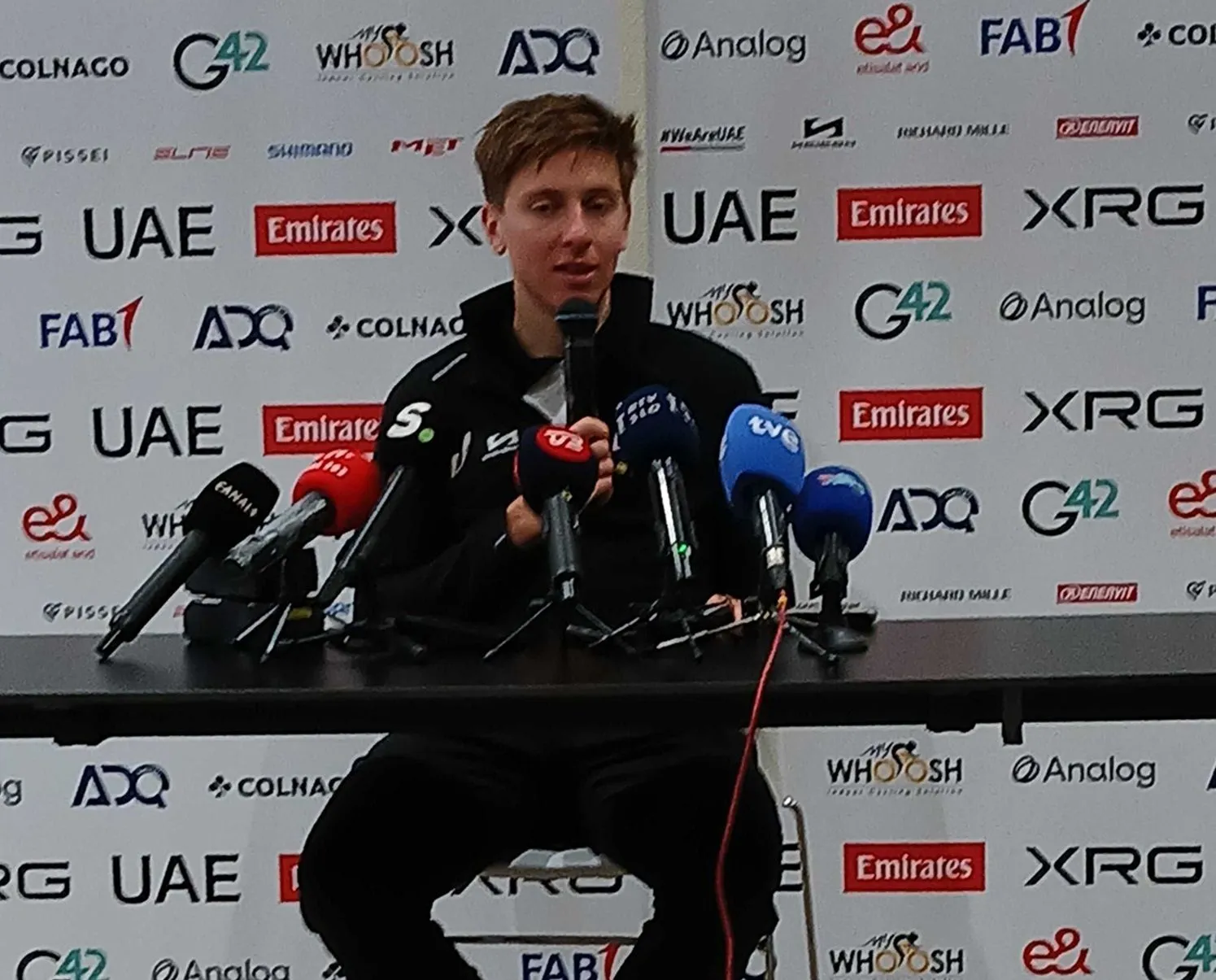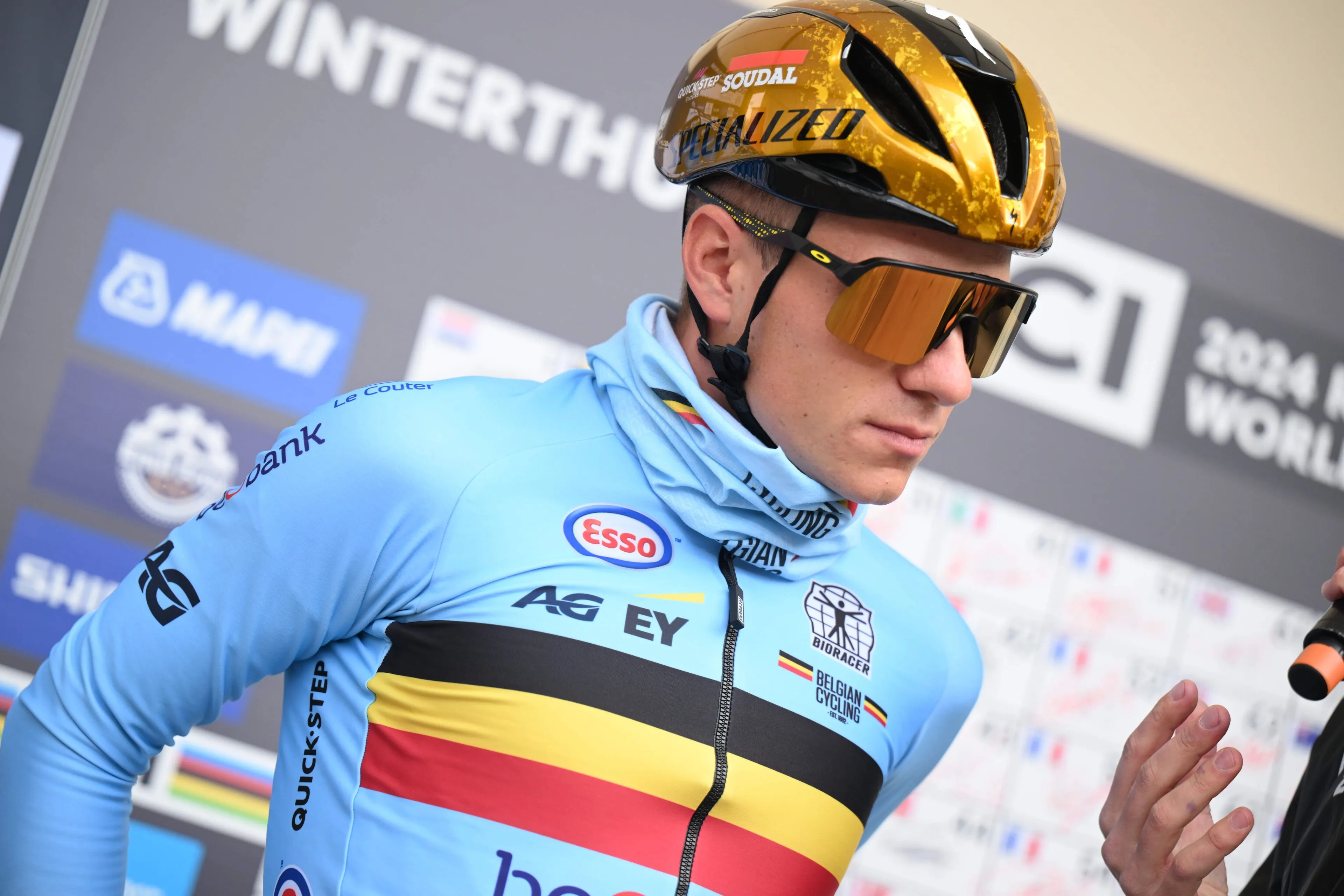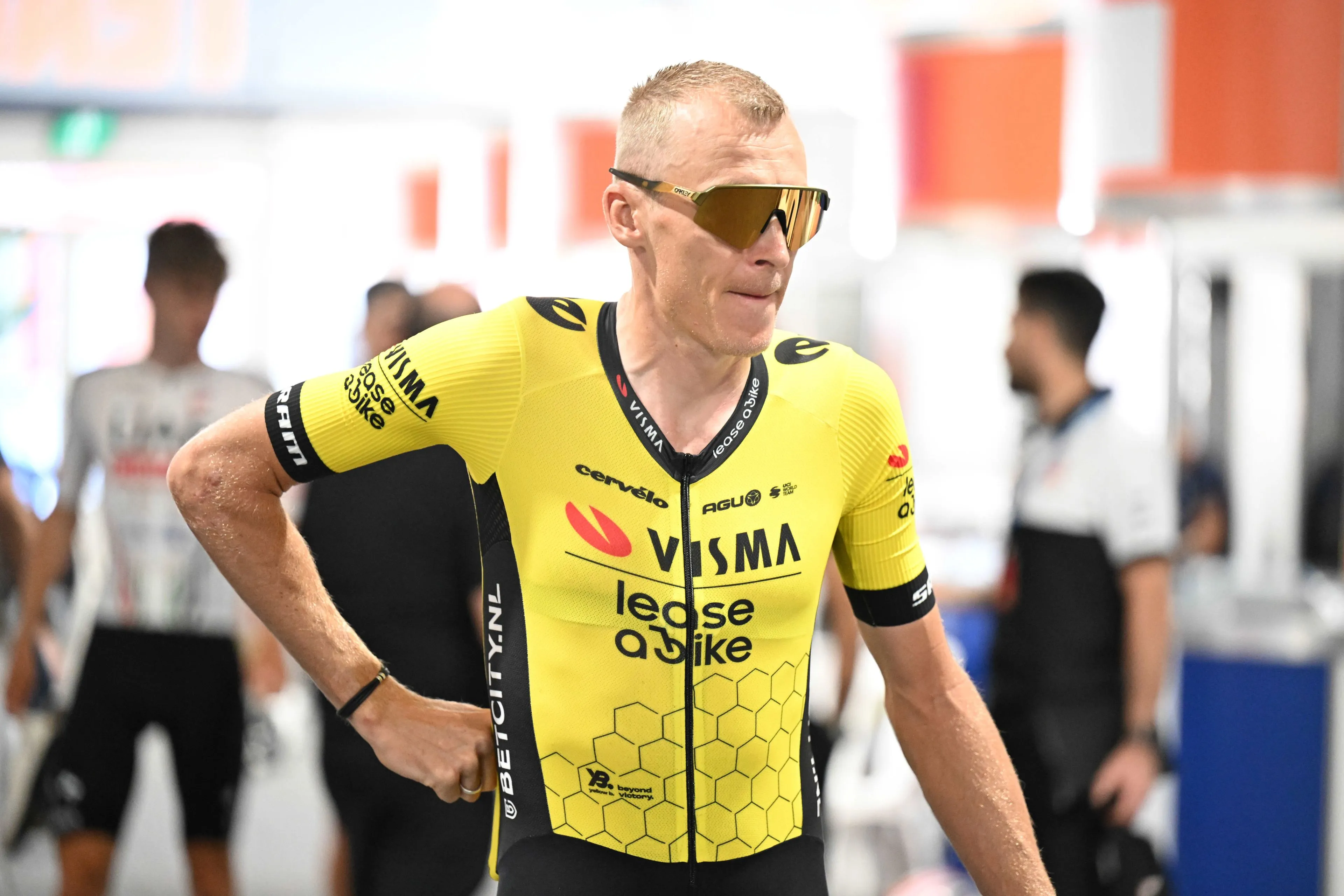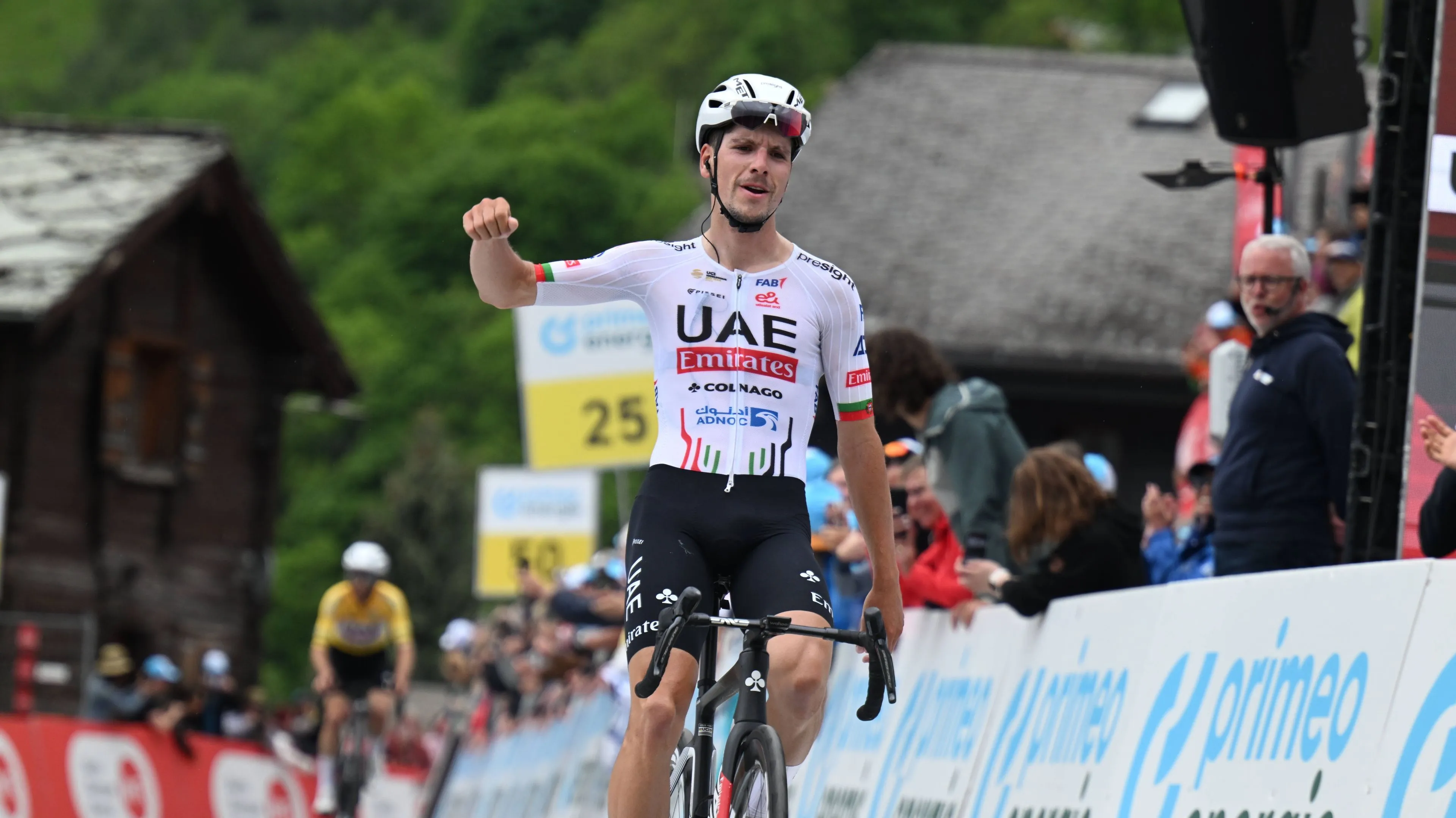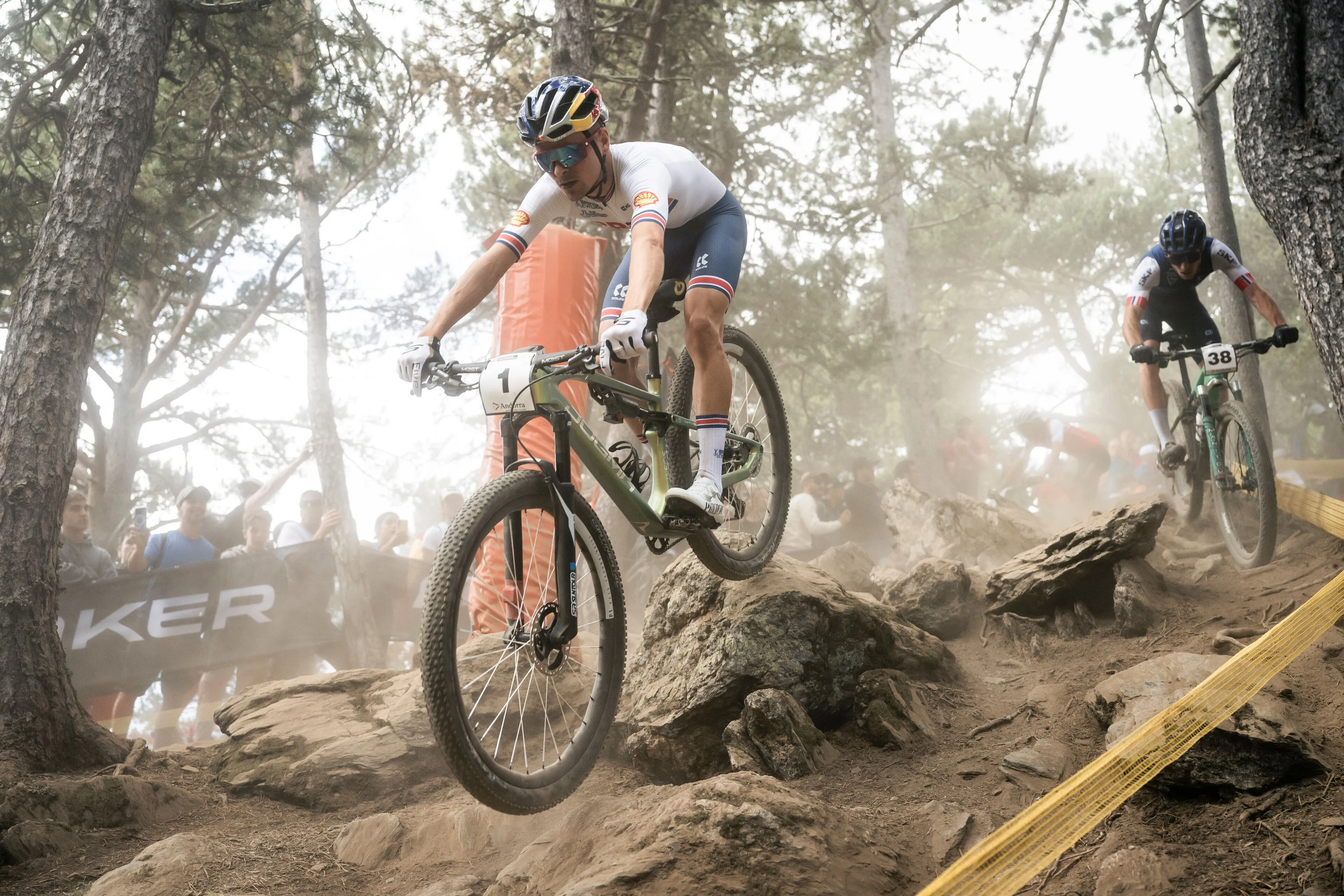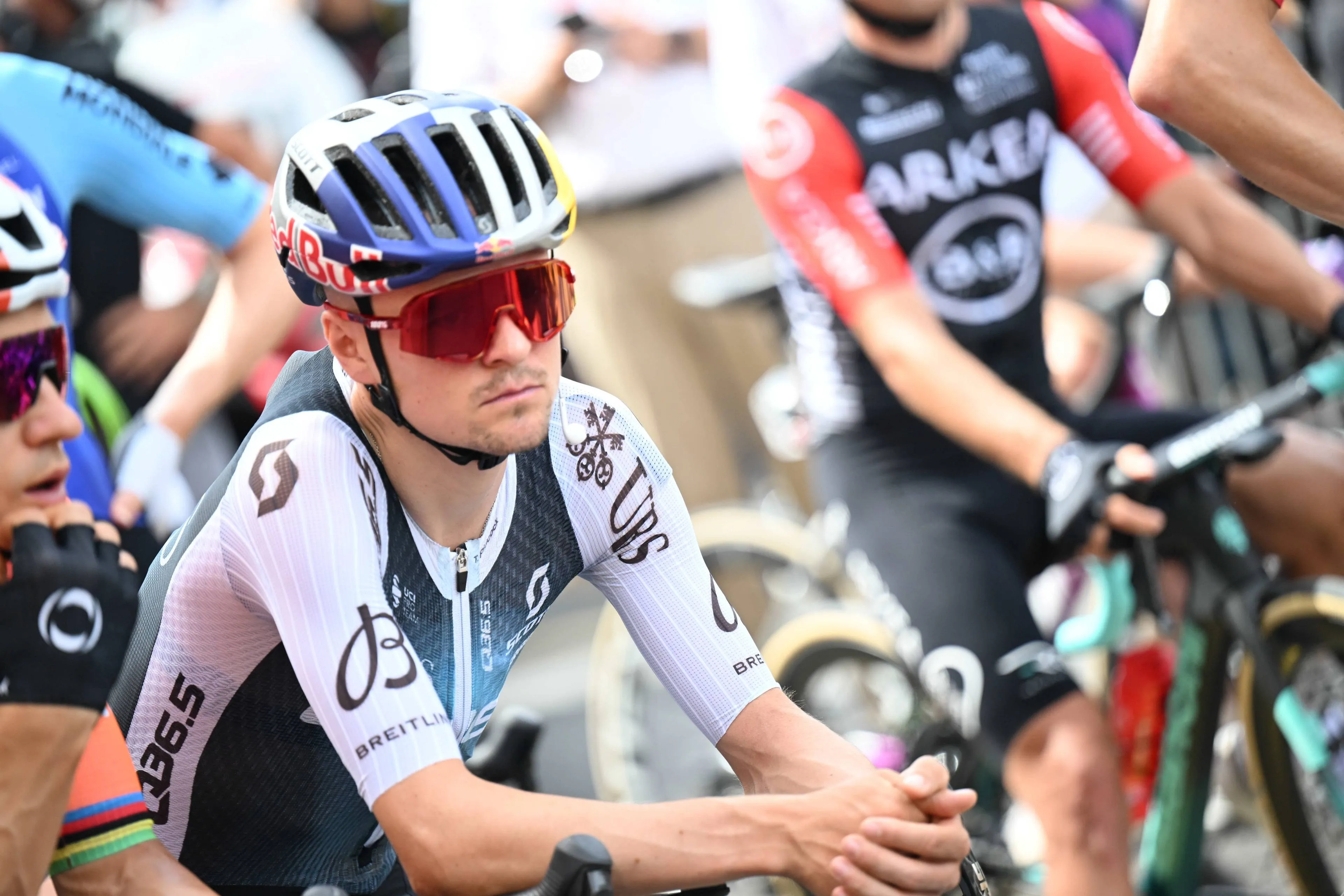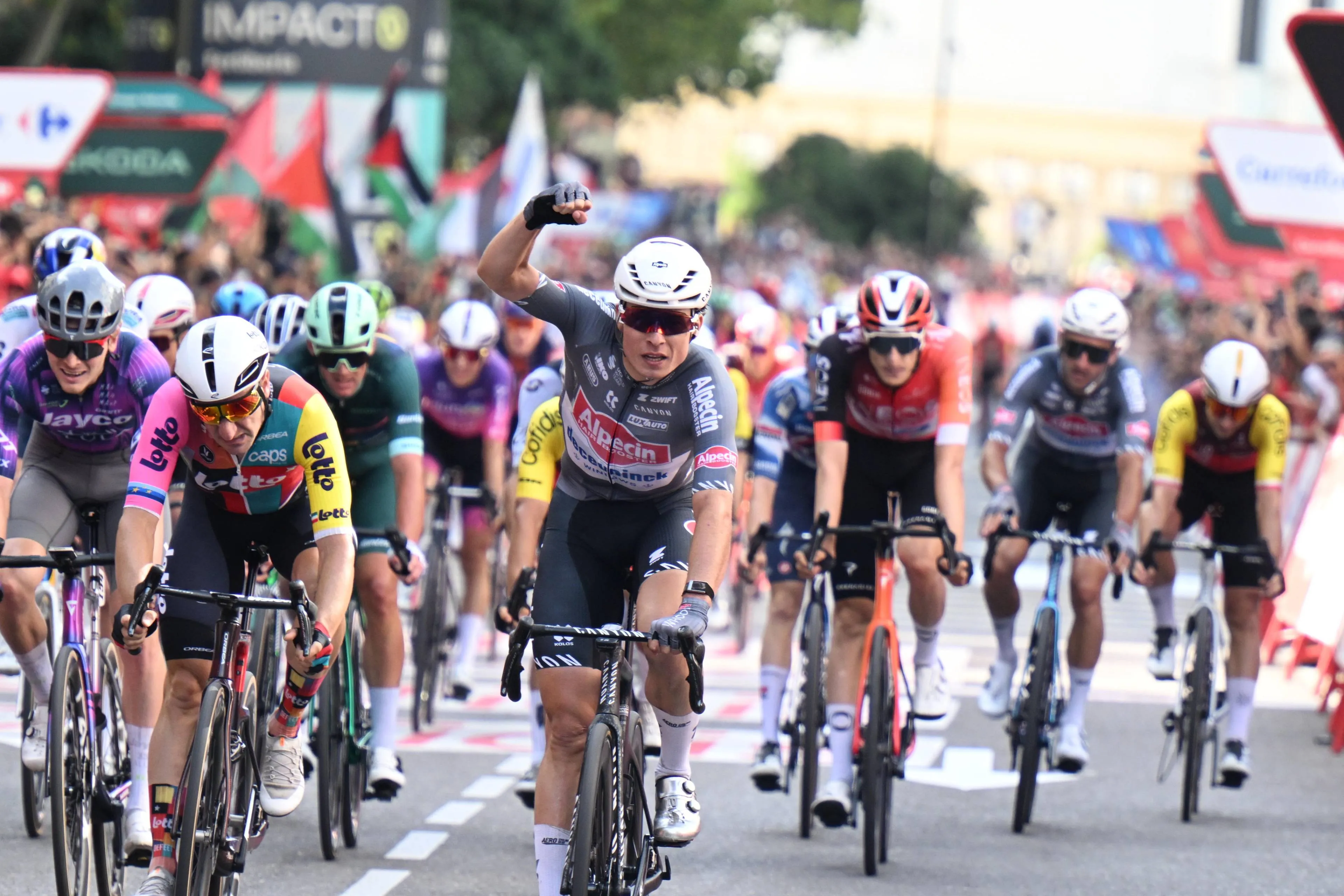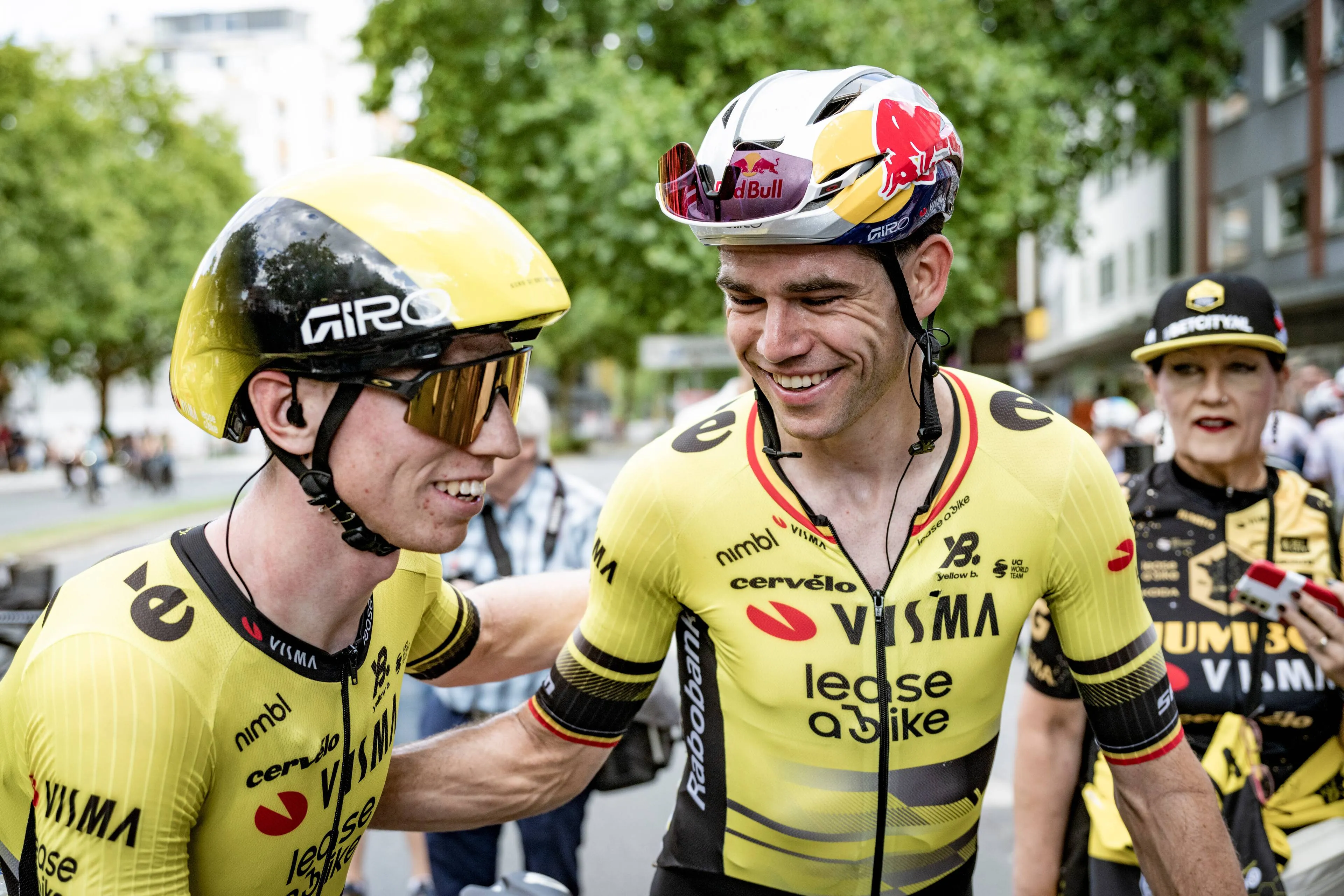ANALYSIS: Is Remco Evenepoel too accident prone to compete with Tadej Pogacar and Jonas Vingegaard?
CyclingTuesday, 10 December 2024 at 20:00

Remco Evenepoel’s 2024 season was, in many ways, a defining
one. After a rough spring that saw him sidelined with injuries sustained during
a crash at the Itzulia Basque Country, the young Belgian bounced back extraordinary
to deliver the best year of his career to date. Evenepoel claimed third place
at the Tour de France in his debut appearance, won a stage, and clinched the
prestigious young riders’ classification. He then went on to make history at
the Paris Olympics, becoming the first male cyclist to win both the time trial
and road race golds in the same Games. It was a season that silenced many
critics and showed that he is the closest rival to Tadej Pogacar and Jonas
Vingegaard.
But the year didn’t end on the same high note. In late
November, during what should have been a routine training ride, Evenepoel
suffered a freak crash, resulting in a suspected fractured collarbone and a
severely damaged bike. This mishap not only cut short his recovery and
preparation window for 2025 but also reignited questions about his ability to
avoid incidents that could derail his career.
Read also
While Primoz Roglic has often been labelled as cycling’s
"crash-prone" star, Evenepoel has definitely had his fair share of
incidents. The question is: are these incidents random misfortunes, or do they
point to a larger issue? And more importantly, could his apparent
susceptibility to accidents prevent him from consistently challenging Tadej
Pogacar and Jonas Vingegaard for supremacy in the coming years?
Major crashes and incidents in Evenepoel’s career so far
Evenepoel’s undeniable talent and meteoric rise have often
been overshadowed, or at least halted, by a string of high-profile crashes. The
most dramatic of these came in 2020 at Il Lombardia, where he misjudged a
corner while descending, plunging over a guardrail and into a ravine. The crash
left him with a fractured pelvis and a long road to recovery, sidelining him
for months, but he was actually lucky to escape without more severe injuries.
Read also
A year later, at the 2021 Giro d’Italia, Evenepoel’s Grand
Tour debut was marred by another setback. On Stage 17, he crashed during a
technical descent, sustaining injuries that forced him to abandon the race, and
the incident raised questions about his handling skills, particularly in
challenging conditions.
Evenepoel’s crashes have continued to plague him, with one
of the most recent occurring earlier this year at the Itzulia Basque Country. A
high-speed crash left him with multiple injuries and derailed his spring
campaign. Though he rebounded spectacularly later in the season, these
recurring incidents highlight a worrying trend. Of course, cycling is a sport
where injuries are simply part of it, and sometimes it’s about when you crash,
not if. But is there more Evenepoel could do about it?
Read also
How do Evenepoel’s rivals compare?
Evenepoel isn’t the only top rider to suffer setbacks due to
crashes, but how does he compare to his biggest rivals?
Tadej Pogacar faced a similar challenge in 2023 when a crash
at Liège-Bastogne-Liège resulted in a fractured wrist. The injury severely
disrupted his preparation for the Tour de France, and despite his best efforts,
he was convincingly beaten by Jonas Vingegaard that summer. Pogacar himself
admitted that he wasn’t at his best, and his wrist issues persisted well into
the off-season.
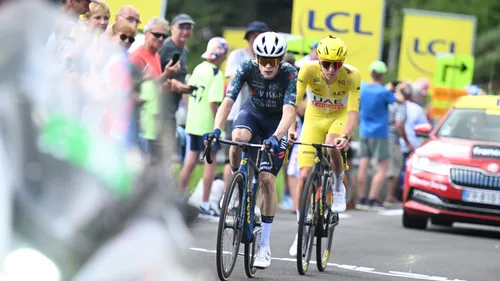
Jonas Vingegaard and Tadej Pogacar are familiar with injuries too
Jonas Vingegaard endured his own struggles in 2024. A crash
at the Itzulia Basque Country left him with broken ribs and a collapsed lung,
keeping him out of competition for several weeks and jeopardising his Tour de
France campaign. Although he managed a second-place finish at the Tour, he was
clearly not at the level required to challenge a resurgent Pogacar.
While Evenepoel’s rivals have had their fair share of
accidents, the difference lies in frequency and timing. Pogacar and
Vingegaard’s crashes have been occasional setbacks, while Evenepoel’s career has
been littered with incidents that may not have been his fault, but still could
prevent him from bridging the gap to the big two.
Read also
Why does this happen to Remco?
Several factors may contribute to Evenepoel’s apparent
susceptibility to crashes.
Firstly, his late start in the sport is worth noting, as
Evenepoel only transitioned to cycling at age 17, having spent his early years
as a promising footballer before a serious pelvic injury at 15 saw his
professional dreams cut short. This late start means he has had less time to
develop the instinctive positioning and handling skills that riders who began
cycling in their early teens often possess.
Read also
Evenepoel’s positioning in the peloton has also been a
recurring issue. During the 2024 World Championships in Zurich, when Pogacar
launched his race-winning attack, Evenepoel was poorly positioned and unable to
respond effectively. Similarly, on Stage 2 of the Tour de France up the San
Luca climb, his suboptimal placement left him with significant ground to make
up, expending valuable energy in the process.
Experience in the peloton is crucial for avoiding crashes.
Navigating through a tightly packed group of riders at high speeds requires not
only skill but also a deep understanding and instinctive understanding of how
the pack moves. Yes, crashes are inevitable, but Evenepoel’s relative
inexperience compared to his rivals may leave him more vulnerable in chaotic
situations, where split-second decisions can mean the difference between
staying upright and hitting the tarmac.
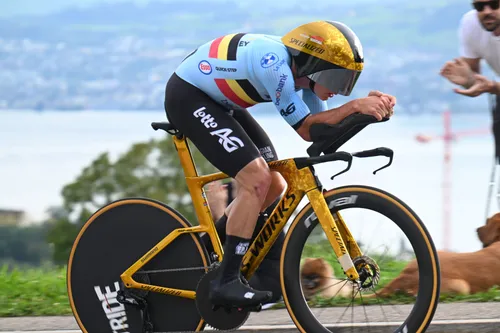
Could Remco Evenepoel's late start in the sport contribute to his crashes?
Is Evenepoel’s 2025 season in jeopardy?
Evenepoel’s latest crash couldn’t have come at a worse time.
The off-season is a critical period for rest, recovery, and building the
fitness base required for the battles of a professional cycling season.
According to Patrick Lefevere, the Soudal – Quick-Step team manager, Evenepoel
will face up to eight weeks off the bike, disrupting his preparation for 2025. It’s
a real shame, as Evenepoel truly had earned a rest after his superb 2024.
Read also
This period of inactivity could have long-term implications.
Cycling is a sport that rewards consistency, and missing key training blocks in
the off-season can leave riders playing catch-up throughout the year. For
Evenepoel, whose biggest goal in 2025 is likely to be the Giro d’Italia and
Tour de France double, the delay in his preparation could compromise his
ability to peak at the right time.
Injuries also take a mental toll. Evenepoel showed impressive
and much improved mental strength in 2024, but the cumulative effect of
repeated crashes may weigh heavily on his confidence and decision-making. But
still, the Belgian has time to make some alterations to his schedule, in order
to be at his Olympic road race level once again, which is the level he will
need to be at to challenge Pogacar and Vingegaard.
Read also
Remco Evenepoel’s talent is undeniable, and his 2024 season
proved that he has what it takes to compete with the very best. However, his
career has been marked by a pattern of crashes and incidents that raise
legitimate questions about his ability to consistently challenge the likes of
Tadej Pogacar and Jonas Vingegaard.
While crashes are an inevitable part of cycling, and are no
fault of his own, Evenepoel’s late start in the sport, positioning issues, and
relative ‘inexperience’ in the peloton may make him more susceptible than his
rivals. As his latest injury threatens to disrupt his 2025 preparations,
Evenepoel faces an uphill battle to establish himself as a consistent force at
the very top of the sport, and he must find a way to limit his incidents.
Read also
Ultimately, whether he can overcome these challenges will
determine whether he fulfils his potential as one of cycling’s greats or
remains the third best rider of his generation, unable to catch the top two. Only
time will tell, but we would love to see Evenepoel make it a three way fight
for yellow in 2025.
claps 0visitors 0
Just in
Popular news
Latest comments
- Great champion Remco but his profile is more suitable for Ardennes-like races and tour with no very hard climbs. Not only Tadej and Vingegaard, there are a lot of younger cyclists (del Toro, Ayuso, maybe Seixas, Nordhagen and others) that will soon be big GC boys.
 maria2024202418-02-2026
maria2024202418-02-2026 - Evenopoel 1st real test, and he failedZamorano18-02-2026
- Remco is not the natural climber that riders like Tadej or Jonas are, no matter how much he trains and prepares for it. Yes, you can TT your way up moderately steep hills, but when the gradient gets super steep, he just can't keep up.
 santiagobenites18-02-2026
santiagobenites18-02-2026 - So against the better riders and a long mountain, Remco cracked. Sorry but way away from Pog and Jonasabstractengineer18-02-2026
- “I was portrayed as the devil" Bruyneel was really a talented team manager. His minor flaws: "coordinated, well-funded, and sophisticated doping regime" "hand-in-hand in implementing the team-wide doping programme" "was involved in trafficking and administering prohibited substances and methods, including EPO, blood transfusions, testosterone, human growth hormone, and cortisone. Teammates testified that nothing significant happened without Bruyneel's knowledge and approval." "fostered an environment where doping was considered a "fact of life" and necessary for success, effectively making it a condition of survival on the team. He also participated in or assisted with the cover-up of positive tests and doping violations." Those quotes show Bruyneel's true talent.Cyclingnut18-02-2026
- Fed up hearing "their" voicesslappers6618-02-2026
- When you join Ineos , learning , time , no pressure go out of the windowabstractengineer18-02-2026
- The UCI screws up againcaptmike18-02-2026
- No matter what people say - I'll watch it. And I bet all the complainers will do it too....averagecyclist18-02-2026
- Exactly what I'm thinking about it. Moreover Van Glis had a lot of time to rethink his situation but decided to stay where he was.averagecyclist18-02-2026
Loading
Write a comment
